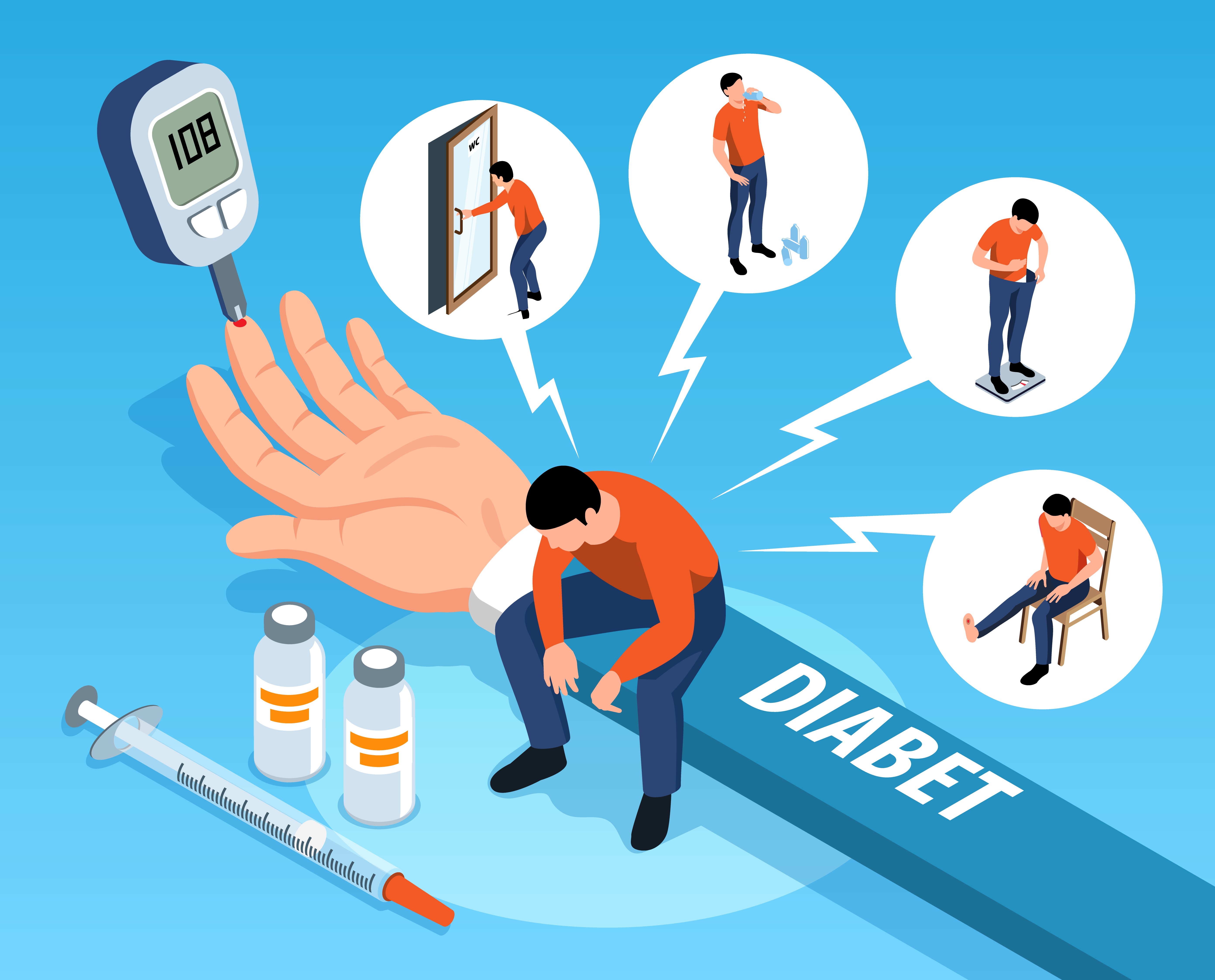Type 2 diabetes is a chronic condition that affects millions of people worldwide. It develops when the body becomes insulin resistant, or the pancreas fails to produce enough insulin. This leads to elevated blood sugar levels, which, if left unchecked, can cause severe health complications.
Recognizing the signs of type 2 diabetes early is crucial for managing the disease and preventing its progression. Here are some key indicators to watch for:
Increased Thirst and Frequent Urination
One of the most common signs of type 2 diabetes is increased thirst, known as polydipsia. This is often accompanied by frequent urination or polyuria. When blood sugar levels are high, the kidneys work harder to filter and absorb the excess glucose. This process draws more bodily fluids, leading to dehydration and increased thirst.
Unexplained Weight Loss
Despite eating normally or even more than usual, individuals with type 2 diabetes may experience unexpected weight loss. This occurs because the body cannot effectively use glucose for energy. Instead, it starts breaking down fat and muscle tissues to compensate, leading to weight loss.
Fatigue
Feeling excessively tired or fatigued is another common symptom. When cells lack glucose, the body lacks the energy to function correctly. This can result in persistent fatigue, even after adequate rest.
Blurred Vision
High blood sugar levels can cause the lenses of the eyes to swell, leading to blurred vision. This symptom may fluctuate with changes in blood sugar levels. If left untreated, it can potentially lead to more severe eye problems, including diabetic retinopathy.
Slow-healing sores or Frequent Infections
People with type 2 diabetes often notice that their cuts, blisters, or sores take longer to heal. High glucose levels can impair blood circulation and affect the body’s ability to repair itself. Elevated blood sugar can weaken the immune system, making individuals more susceptible to infections.
Increased Hunger
Despite consuming enough food, people with type 2 diabetes may feel constantly hungry. This condition, known as polyphagia, occurs because the body’s cells are not receiving enough glucose. The lack of energy triggers the brain to signal hunger, prompting individuals to eat more.
Numbness or Tingling in Hands and Feet
High blood sugar levels can cause nerve damage, a condition known as diabetic neuropathy. This often manifests as numbness, tingling, or a burning sensation in the hands and feet. Early detection and management of blood sugar levels can help prevent further nerve damage.
Darkened Skin Patches
A condition called acanthosis nigricans can be a warning sign of type 2 diabetes. It causes dark, velvety patches of skin, usually in the folds and creases of the body, such as the neck, armpits, and groin. This skin condition is often a result of insulin resistance.
Irritability and Mood Changes
Fluctuating blood sugar levels can impact mood and mental health. Individuals with type 2 diabetes may experience irritability, mood swings, and even symptoms of depression. Stable blood sugar levels are essential for maintaining emotional well-being.
Gum Disease
Diabetes can increase the risk of infections, including gum disease. Symptoms include red, swollen, and bleeding gums and chronic bad breath. Poor oral health can, in turn, make it harder to manage blood sugar levels, creating a vicious cycle.
Managing Type 2 Diabetes
Early detection and management of type 2 diabetes are critical. Here are some strategies to help manage the condition:
Healthy Diet: A balanced diet rich in whole grains, vegetables, lean proteins, and healthy fats can help regulate blood sugar levels.
Regular Exercise: Physical activity improves insulin sensitivity and helps maintain a healthy weight.
Medication: In some cases, medication or insulin therapy may be necessary to control blood sugar levels.
Regular Monitoring: Frequent blood sugar testing and regular check-ups with a healthcare provider are essential for effective management.
Conclusion
Recognizing the signs of type 2 diabetes can lead to early diagnosis and better management of the disease. If you experience any of the symptoms mentioned, it’s essential to consult with a healthcare professional for proper evaluation and treatment. Early intervention can significantly improve quality of life and reduce the risk of complications. Consultation with your healthcare provider is always recommended.






